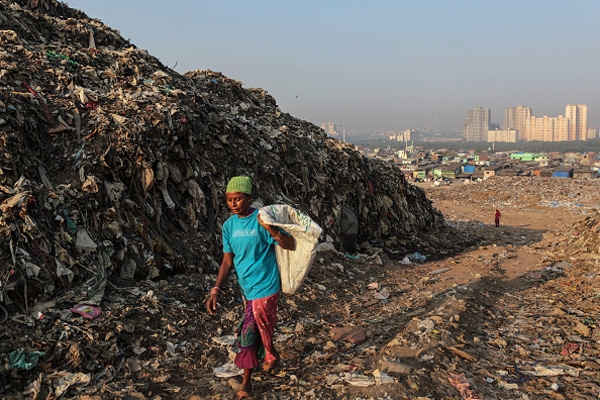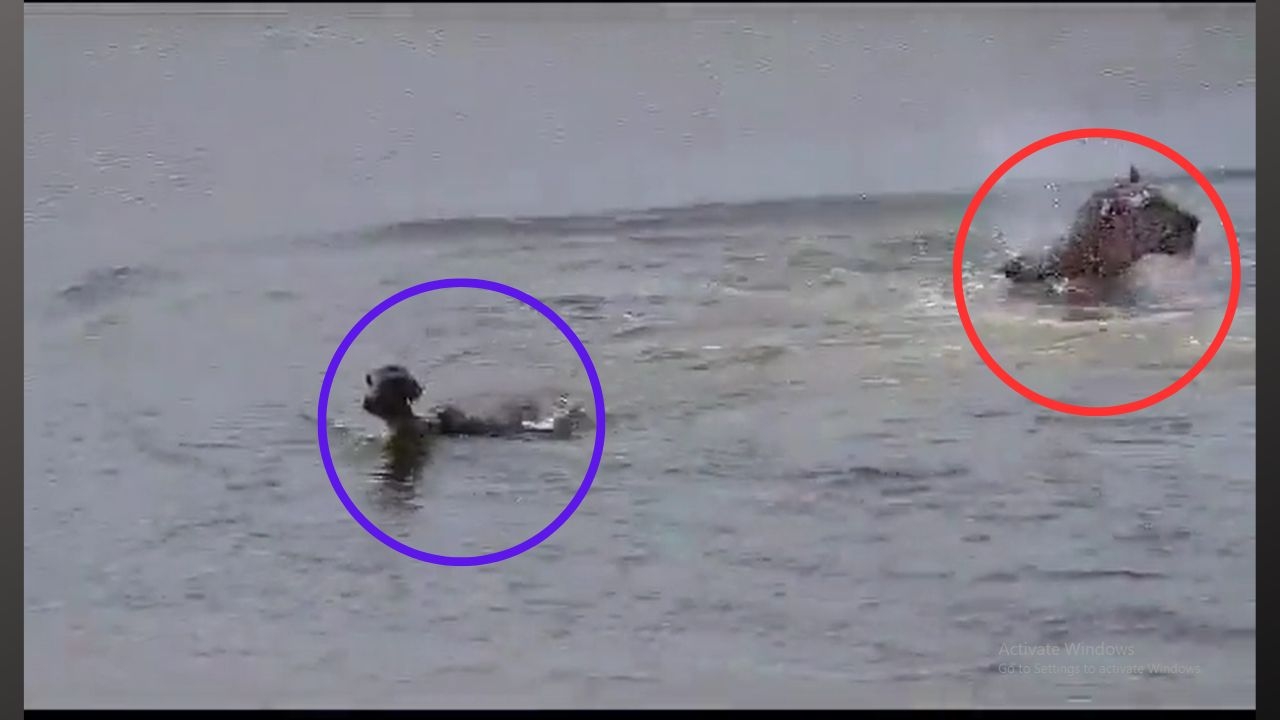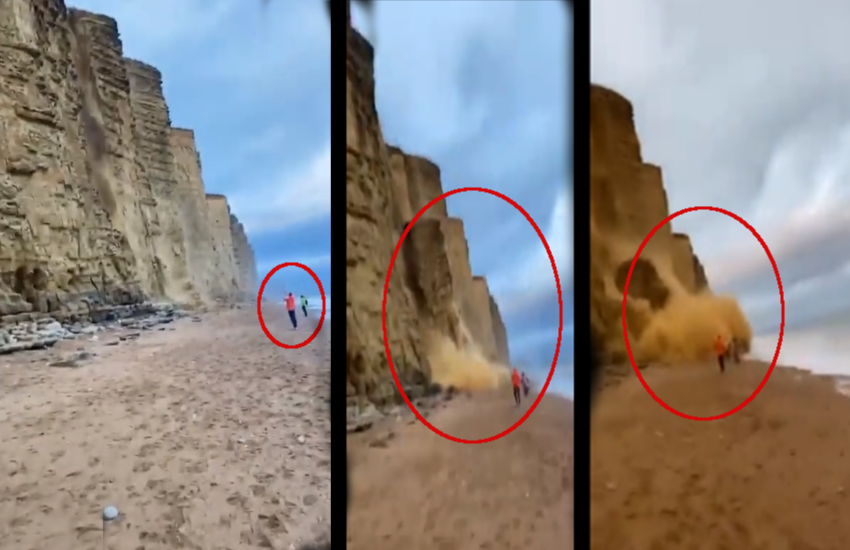We didn't start the fire: Mumbai's netas blame each other for fires at dumping grounds

The fire that broke out at Mumbai's Deonar dumping ground, during the last week of January, made it big in the international headlines.
The smoke emanating from the garbage was so huge that it was even caught by a NASA satellite.
The fire that continued for a week, created several health problems not only for the people living in the areas around the dumping ground, but also as far as residential areas 20 kms away in South Mumbai.
Read- Blaze like no other: Mumbai reels from the effects of a garbage dump fire
As expected, a political blame game ensued soon after the fire. The civic administration and the chief minister ordered an inquiry into the matter. The inquiry will be completed in due course of time and some heads in the civic administration might roll as well.
No solutions
Ironically, the situation has not changed despite Union Environment Minister Prakash Javadekar's visit to all the dumping grounds in Mumbai and Mumbai Metropolitan Region (MMR), six months back.
During the visit, Javadekar had criticised the Municipal Corporation of Greater Mumbai (MCGM) authorities over mindless garbage dumping and undue favours to the contractor.
"I can see that the projects implemented for garbage dumping and treatment, are not technology driven. They are contractor driven. We will take stern action against the errant officials and contractors," Javadekar said.
This has not solved the problem. While politicians are busy blaming each other to score brownie points, taxpayers of Mumbai are suffering for absolutely no fault of theirs. Suggestions have started flooding in to tap the methane generated under the garbage dumps and generate power from that.
Check out- A Charred Future: the graphic aftermath of Mumbai's horrific Kandivali fire
Corporator from Govandi, Raees Sheikh and other leaders from Samajwadi Party even approached experts at IIT Bombay to find out the solution to the frequent incidents of fire. As expected the experts at IIT Bombay came out with the solution of tapping methane from the garbage.
IIT Bombay experts not enough?
The civic authorities, visibly elated by the suggestion, readily agreed to deploy experts at IIT Bombay and National Environment Engineering Research Institute (NEERI) for cantor mapping.
"The experts will tap the methane pockets under the garbage and collect it. The gas collected will be stored in an artificial gas well. The estimated cost of the survey is Rs seven lakh," said a senior Municipal Corporation of Greater Mumbai (MCGM) official. The report prepared by IIT Bombay experts was submitted to the Civic Chief Ajoy Mehta. "I have asked my officers to study the IIT Bombay proposal and submit the report within 45 days. Further course of action will be decided after the report is prepared," Mehta said.
Also read: Mumbai schools shut as city battles thick smog for 5th consecutive day
The experts at IIT Bombay had conducted the survey at Deonar dumping ground, in 2007. According to the survey, the total quantity of garbage at the dumping ground was 12.7 million metric tonnes of garbage and around 5983 million units of methane are generated every hour, which catches fire when in contact with oxygen. Meanwhile, chief minister Devendra Fadanvis has formed a special team headed by additional commissioner, East Region Manoj Lohia to investigate the incident.
However, environmentalists feel that these measures will not prove to be effective in preventing fires at dumping grounds across the city. Stalin Dayanand, director - projects, at Mumbai based NGO Vanashakti says, "Despite repeated fires at dumping grounds, the civic authorities have done nothing to check the incidents. Deonar had been smouldering for seven days, while Mulund dumping ground is smouldering for over a month. Since the fire at Mulund dumping ground is not as big as the one at Deonar, it has escaped the attention of people, authorities and media. It is high time that government took corrective measures."
It is not just the dumping grounds in Mumbai that are a serious cause of concern. With rapid urbanisation, residential complexes are coming up in all possible open lands in Mumbai Metropolitan Region (MMR). Ambernath, a small town in Thane district is now emerging as a preferred destination of the middle and higher middle class people. "Given the sky rocketing real estate prices in Thane and Mumbai, I cannot afford a house there. In this case, Ambernath is the only feasible option left for me, despite various issues," says Mahesh Kanhere a resident of Ambernath.
The remarkable increase in residential complexes at Ambernath has created a major issue of garbage dumping for the town. Thousands of tonnes of garbage generated in Ambernath is currently being dumped on an open plot barely 50 meters away from a residential complex. The situation at Ambernath is not much different than Mumbai. Toxic smoke is constantly emanating from the garbage for last three months. Authorities though, have simply turned a blind eye towards it. Just listen to what Stalin said.
Not enacting upon the law
"Cases pertaining to dumping g rounds have been pending in the court for the past decade. There are two laws that deal with the issue of Municipal Solid Waste -
The Municipal Solid Waste Handling Rules 2000. This central law was further strengthened by the state law enacted in 2006, the Maharashtra and Non-biodegradable Garbage (Control) Act, 2006. All that the judiciary had to decide was whether both these laws were being complied with. But our system being what it is, has allowed violations to continue. It is only late last year that the Bombay High Court, hearing a PIL we had filed, directed the closure of both the Mulund and Deonar dumping grounds. MCGM could not expand its illegality in terms of merrily dumping massive quantities of mixed waste on wetlands."
Read more: What this incredible story of a beggar couple's 'riches' says about Mumbai
Faced with this situation, the MCGM requested the Court that permissions for both the grounds at Mulund and Deonar be extended for some more time. The Court instructed MCGM to show how the compliance with the law would be done. "If the MCGM authorities comply with the laws, there is no need for any dumping ground to be shut down," Stalin said.
Not adhering to rules
Urban development rules and environment safety rules provide that area within 500 meter radius around every dumping ground shall be monitored for a period of 15 years to allow the toxic gases to be released and the restoration to be done. "However, forget after closure, sky scrapers rises came up in Mulund within 100 meters of the dumping ground, when it was operational and no one protested. Similarly, in Deonar multi storey buildings are being constructed all around the dump site. If the dump continues, the real estate price of these buildings will never rise," Stalin continued.
More than 40 per cent of the site has been encroached upon and despite the Bombay High Court ordering the removal of slums from the vicinity, there has been no visible attempt made by the state government to relocate them to less hazardous areas. "Armed with a court order, the inaction of the government leaves little for imagination. Assume that both the dumps are shut, where does all garbage go? To the wetlands of Kanjurmarg, inside a sanctuary bang adjacent to Mumbai's largest middle class housing colony Kanamwar Nagar which came into existence in 1965 much before the affected residents of the other dumping grounds came into the picture," he says.

Photo: Dhiraj Singh/Bloomberg via Getty Images
The MCGM has consistently violated laws of waste handling for more than 15 years. "The Maharashtra Pollution Control Board, I call it the Maharashtra Pollution Cover up Board, has also failed to discharge its duties. Show cause notices and prosecution notices are sent out after much outcry and damage. MCGM sends polite replies that it will take corrective action and both MCGM and MPCB live happily together ever after," Stalin said, adding, "MPCB officers must face criminal prosecution for failing in their duties. This is nothing short of attempt to murder. How will we react if a serial killer is left loose on the streets by the police? The role of MPCB is that of a policeman. They cannot hide behind any excuse."
The state government has identified over 140 hectare of land near Taloje in Navi Mumbai. The site would be developed as dumping ground for the entire MMR. The garbage from all areas such as Mumbai, Thane, Kalyan, Dombivali, Ambernath, Badlapur and Navi Mumbai would be brought to this place and disposed after scientific treatment. However, given the track record of the authorities concerned, residents of Taloja and other villages around the land have opposed the decision. Hence, the land is not being used for garbage dumping. With people opposing to accept garbage of other cities in their backyard and government being lackadaisical about scientific treatment, people are bound to suffer.
Edited by Sahil Bhalla
More in Catch:
#JNUcrackdown redraws battle lines: it's the right vs the rest now
AAP's Sanjay Singh: We all accept Kejriwal's leadership. What's wrong with that?
Heart Attack: inside the crazy, colossal $19 billion Valentine's Day industry
Fresh from #Headley script: I feared I'd be arrested or killed after 26/11





![BJP's Kapil Mishra recreates Shankar Mahadevan’s ‘Breathless’ song to highlight Delhi pollution [WATCH] BJP's Kapil Mishra recreates Shankar Mahadevan’s ‘Breathless’ song to highlight Delhi pollution [WATCH]](https://images.catchnews.com/upload/2022/11/03/kapil-mishra_240884_300x172.png)

![Anupam Kher shares pictures of his toned body on 67th birthday [MUST SEE] Anupam Kher shares pictures of his toned body on 67th birthday [MUST SEE]](https://images.catchnews.com/upload/2022/03/07/Anupam_kher_231145_300x172.jpg)






